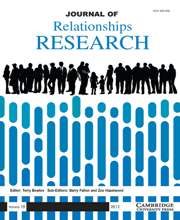Article contents
Gender Differences in Children's and Parents' Social Support Perceptions
Published online by Cambridge University Press: 23 February 2012
Abstract
There are limited studies investigating gender differences within the father–child and mother–child relationships with regard to social support provisions within these relationships. This study aimed to explore gender unity in children's and parents' perceptions of social support within the parent–child relationship. The participants included 91 families who completed measures of social support satisfaction and social support effectiveness. Results were contrary to the gender unity assumption. Findings indicated that mothers and fathers provide different types of support to their children regardless of their child's sex. Further, this study demonstrated the importance of father–child interactions and the need to further investigate the types of support fathers provide their children. This study explored gender differences in social support perceptions within the parent–child relationship. It investigated if mothers and fathers perceive the support they provide their children with is differentiated according to whether their child is a son or a daughter (i.e., gender unity). In this study, gender unity relates to whether parents consider themselves to be more effective in their support provisions to their same-sex child than to their opposite-sex child. Moreover, gender unity also pertains to whether children are more satisfied with the support provided by their same-sex parent than their opposite-sex parent. It is therefore important to define social support in order to understand it within the context of the parent-child relationship.
- Type
- Articles
- Information
- Copyright
- Copyright © Cambridge University Press 2011
- 5
- Cited by


